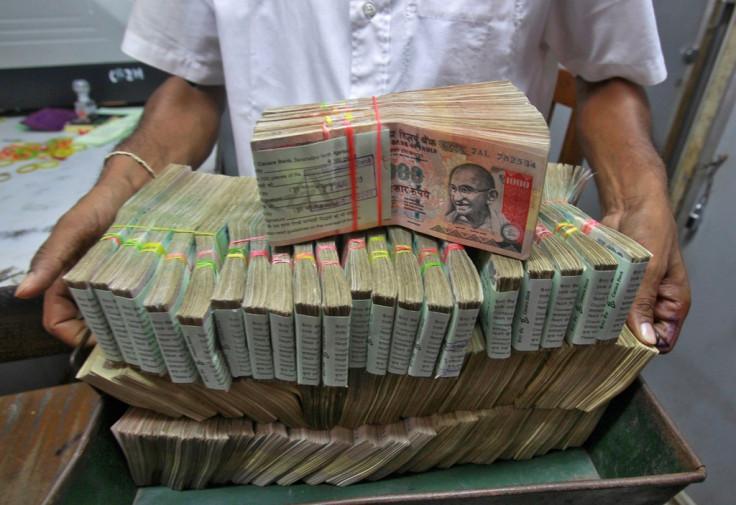Asia EM-FX: Rupee off lows on RBI, Thai baht falls to 1-month low while Malaysian ringgit up to 2-month high

Asian emerging market currencies traded mixed on Monday (April 27) as Fitch downgraded Japan even as the region continued to assess the social and economic impact of the devastating Nepal earthquake and the re-construction needs.
Indian rupee had fallen to a four-month low earlier in the day tracking the strength of the dollar, but dollar selling by national banks helped the local unit to recover slightly towards the end.
USD/INR ended at 63.49 down from Friday's close of 63.57, but after trading as high as 63.77 intra-day, its highest since late December last year.
Indian share markets have been down for more than a week with foreign investors selling off their stakes amid tax-related concerns. In addition, month end dollar demand from oil importers weighed on the rupee.
Traders said selling by state banks after 63.50 level got broken seemed to be intervention by the Reserve Bank of India.
The USD/MYR pair fell to 3.5576, its lowest since 10 February, before ending at 3.5668 compared to Friday's close of 3.5815. The ringgit has rallied nearly 4% so far in April, moving off the 6-year low of 3.7381/dollar touched in April.
The Thai baht has been down for the past four sessions and was down 0.45% on Monday as the USD/THB pair rallied to 32.71, its highest since 20 March. The baht is down 0.51% so far in April, adding to the 0.6% slide in March.
The Indonesian rupiah weakened to 12,983/dollar from 12,920 on Monday but it is strong when compared to the end March levels. So far in April, the rupiah has strengthened 0.7% against the greenback.
Asian Development Bank has offered $3m as grant for Nepal for immediate relief works and additional $200m of aid for further rehabilitation, the bank said on Monday.
Christine Lagarde, the Managing Director of the International Monetary Fund (IMF), said a team of the Fund will visit the country soon to assist the Nepal government and other agencies at work.
"An IMF team stands ready to visit Nepal at short notice to help the government assess the macroeconomic situation and determine any financing needs. We are also coordinating closely with the World Bank, ADB, and other agencies to assess the impact of the natural disaster on the country and determine how best we can help."
The death toll from Nepal's devastating earthquake has climbed to past 3,700 as the entire country's army is involved in desperate rescue operation in mountain villages near the epicentre of the quake.
© Copyright IBTimes 2025. All rights reserved.


















